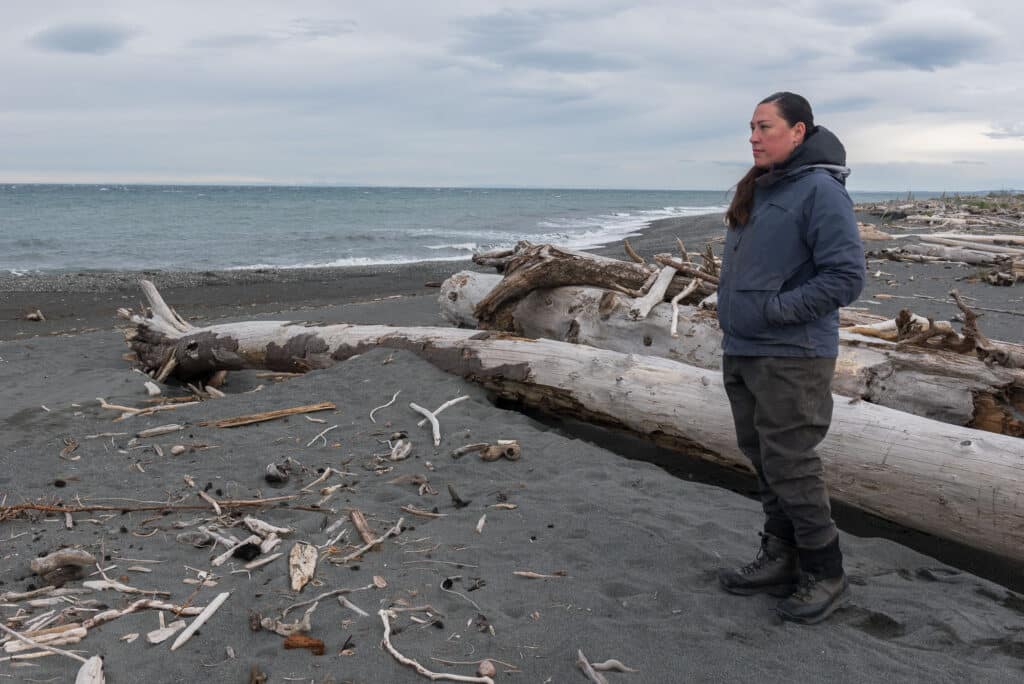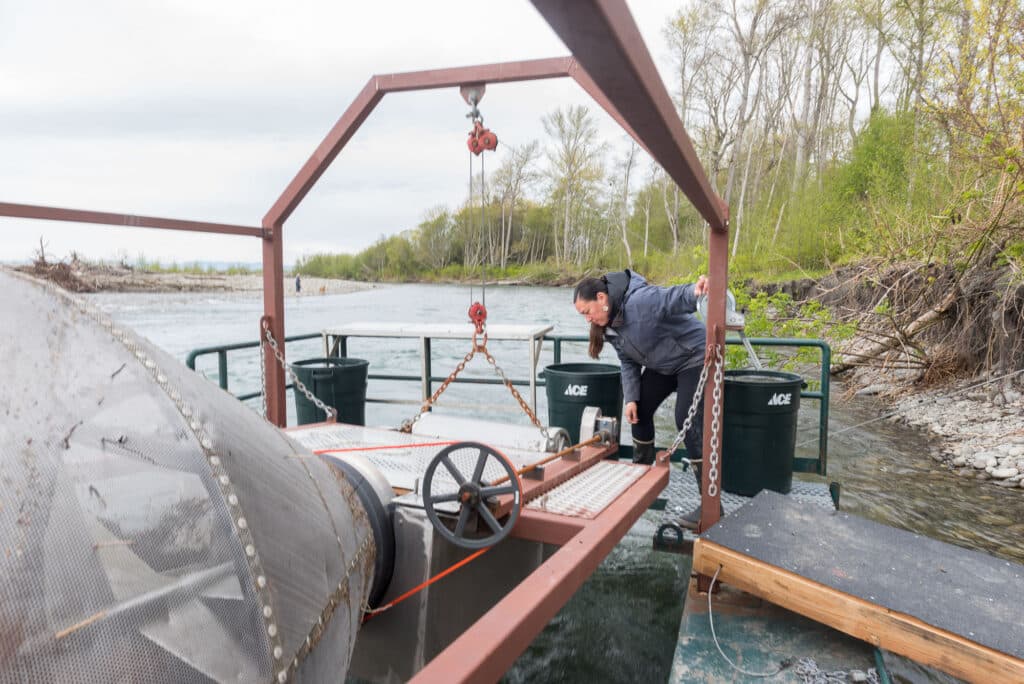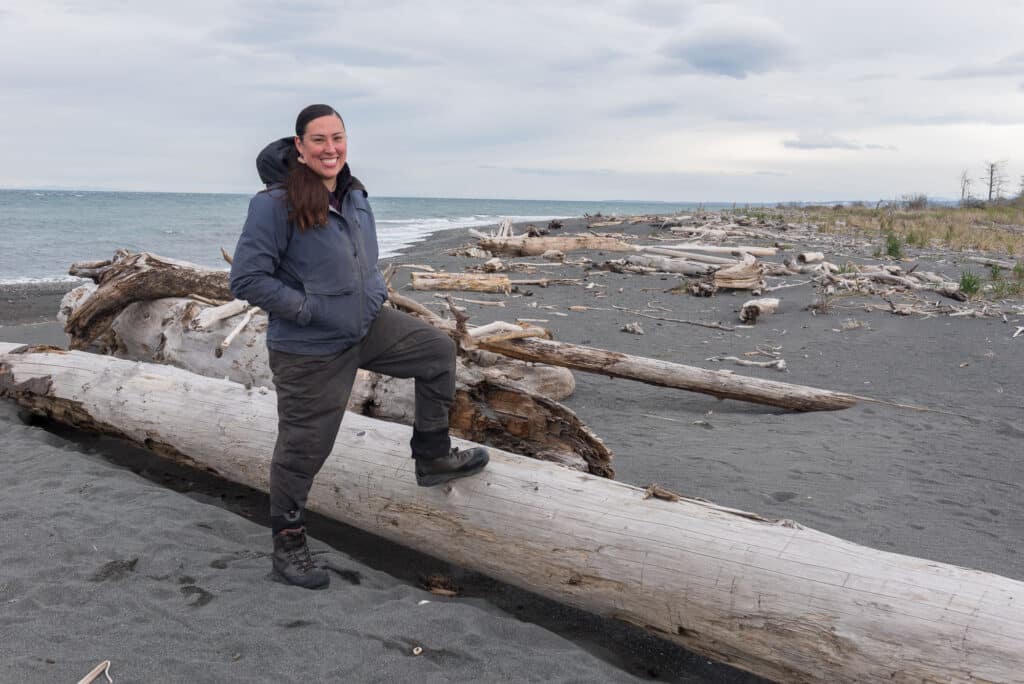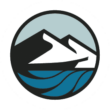By Vanessa Chin, Maritime Washington Storytelling Intern
Image above: Standing on one end of a rotary screw trap, Vanessa Castle and her team use this equipment to evaluate the numbers of juvenile salmon in the Elwha River. Courtesy of Pat Beggan.
“I have been fighting for natural resources as an Indigenous person since I was a child and followed in my ancestors’ footsteps, who have also been fighting to protect all of the things in the sea and the rivers for our future generations, to make sure that our resources are secure and sustainably harvested, to make sure that they continue.”
Vanessa Castle, Fisheries and Wildlife Technician, Lower Elwha Klallam Tribe
Growing up as a Tribal fisherwoman, Vanessa Castle learned how to catch Coho salmon from the Elwha River to help support and feed her family. When a decline in fish population forced her family to transition to saltwater fishing for crab, shrimp, and halibut, Vanessa learned what it meant to harvest sustainably. Years later, this background provided a natural transition into a career with the Lower Elwha Klallam Tribe’s Natural Resources Department. “Stepping into natural resources, I knew that I wanted to continue to try to protect all of those things: the fish, the crab, and anything that we rely on for our cultural aspect, but also to feed us as people and to make sure that those things are available for my children,” says Vanessa.
As a fisheries and wildlife technician, Vanessa’s time is split between two important projects. Two days a week she works on the Olympic Cougar Project, tracking the big cats that live on the north Olympic Peninsula to learn more about their migration patterns, genetic diversity, and predation rate on species culturally significant to the Lower Elwha Klallam Tribe, such as deer and elk.


The rest of the week, Vanessa focuses on the fisheries side of her job and collects data about the fish and animals found in the Elwha and neighboring watersheds. Starting in 2011, two dams were removed from the Elwha River, restoring access to more than 70 miles of mainstem and tributary habitat to salmon and other native fish species. During spawning season, the team looks at the outmigration of baby Coho, Chinook, and steelhead salmon to estimate how many fish will swim out to sea. Since the dam removals, about 800 acres of land that were previously flooded are seeing the return of plant and animal species, which Vanessa and her team study with the help of camera grids. Once a month, they beach seine at the mouth of the Elwha River to look at the population of fish in the estuary, which has also changed a lot since the dam removals.
For Vanessa, her greatest joy is seeing these changes and the impact that river restoration has had on the local wildlife: “By far, the most exciting and emotional moment for me was seeing Chinook above both previous dam sites, seeing that the salmon are returning to a place that they haven’t been in more than 100 years.”
As a Lower Elwha Klallam Tribal member, Vanessa continually weaves her scientific and Indigenous perspectives to educate others about the natural resources field and the traditional ecological knowledge that has been passed down through countless generations. To continue this knowledge, she focuses on youth education in the hope of inspiring the next generation to fight for these resources after she’s done.

The Lower Elwha Klallam Tribe’s Natural Resources Department is always looking for citizen scientists! For volunteer opportunities, email Chelsea Behymer at [email protected].

